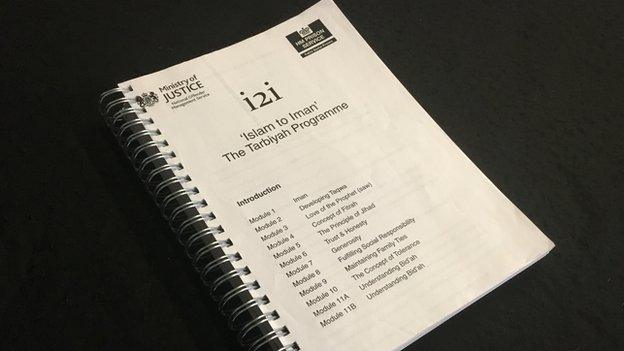Extremists to be put in special prison units
- Published
- comments
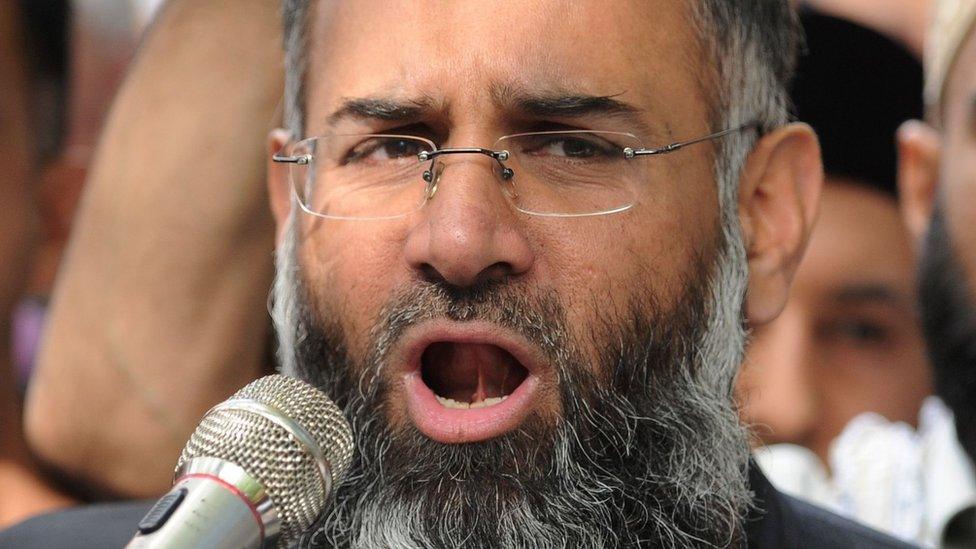
The report comes days after it was revealed radical cleric Anjem Choudary was convicted for inviting others to support so-called Islamic State
Extremist prisoners who "seek to poison the minds of others" will be put in special units in English and Welsh jails, the government has said.
Justice Secretary Liz Truss also set out plans for the removal of extremist books from prison libraries and stronger vetting of prison chaplains.
But the Prison Reform Trust warned many jails had been hit by staff cuts.
It comes after a report, external found there was "complacency" at the "growing problem" of Islamist extremism in jails.
The review into extremism in prisons, led by former prison governor Ian Acheson and published on Monday, found:
A "Muslim gang culture" and consequent violence, drug trafficking and criminality inspired or directed by these particular groups
Extremist prisoners advocating support for the so-called Islamic State, and threats against staff, other inmates and prison chaplains
"Charismatic" prisoners acting as self-styled "emirs" - a title sometimes used for Muslim leaders or military commanders - exerting a radicalising influence
Aggressive encouragement of conversions to Islam, and attempts by extremist prisoners to engineer segregation by landing, wing, or prison
Islamist radicals trying to get prison staff to leave during Friday prayers, attempts to prevent staff searches by claiming dress is religious, and an exploitation of staff concerns that they may be labelled racist
The prison wing housing only terrorists
Going undercover against extremism
Prisons in England and Wales were at present "very far from being effective" in tackling extremism in prisons, Mr Acheson said.
In response to the report, Ms Truss said the prison system "cannot continue" to allow some inmates to "peddle poisonous ideology across the mainstream prison population".
The government will implement eight of the report's 11 recommendations, external, including creating a "small number" of specialist units to separate the "most subversive extremists".
A similar "jail within a jail" system has been used in the Netherlands to tackle radicalisation.
An ex-senior prison official weighs up the pros and cons of government plans on extremism
Ms Truss accepted there was a "risk" extremists could become more influential when kept together, but said authorities must keep apart those who might collaborate together to create more problems.
The government will "take steps to remove extremist and offensive literature from prisons", and strengthen the vetting system for prison chaplains.
Inmates "behaving subversively or promoting beliefs that run counter to fundamental British values" will be removed from Friday prayers.
'Sinister side'
Jamal - not his real name - who spent four years in prison for fraud, told the BBC how young men like him were targeted through initially friendly approaches.
"There was no talk of religion involved, there was no talk of radicalisation involved. It was just a very warm conversation... and they want to share some experience and camaraderie to boost your spirits a bit and that's how it starts.
"And then... the rhetoric changes. And you start seeing the more sinister side."
Justice Secretary Liz Truss: 'Rooting out prison extremism is key'
'Extremist' books remained in prisons despite warning
Warning over Islamic radicalisation in England's prisons
Publication of the report comes a few days after it was revealed that radical cleric Anjem Choudary had been convicted of inviting others to support so-called Islamic State.
Fears have been voiced that Choudary, who is due to be sentenced in September, would be able to influence other inmates with his views.
But Daniel Sandford said that creating special units within prisons was not without risks.
When some IRA prisoners were concentrated in Whitemoor prison in the 1990s, they were viewed as having gained too much control in the high-security unit and managed to escape, he said.
'Hardest hit'
Former prison governor and now director of the Prison Reform Trust Peter Dawson said the special units could be effective if they were used as a short term measure with a focus on rehabilitating segregated inmates "to change the way they behave and think".
But he warned the strategy only dealt with "half of the problem", as the Acheson report raised serious concerns about radicalisation in lower-security prisons, which had been "hardest hit" by staff cuts in recent years.
Labour MP Keith Vaz, chairman of the Home Affairs Select Committee, welcomed the focus on prisons, saying they had been "spaces where extremism has permeated and radicalised inmates" for too long.
But the government must "be wary of creating a colony of jihadists", he added, calling for careful thought about who was placed in such units and for how long.
- Published18 August 2016
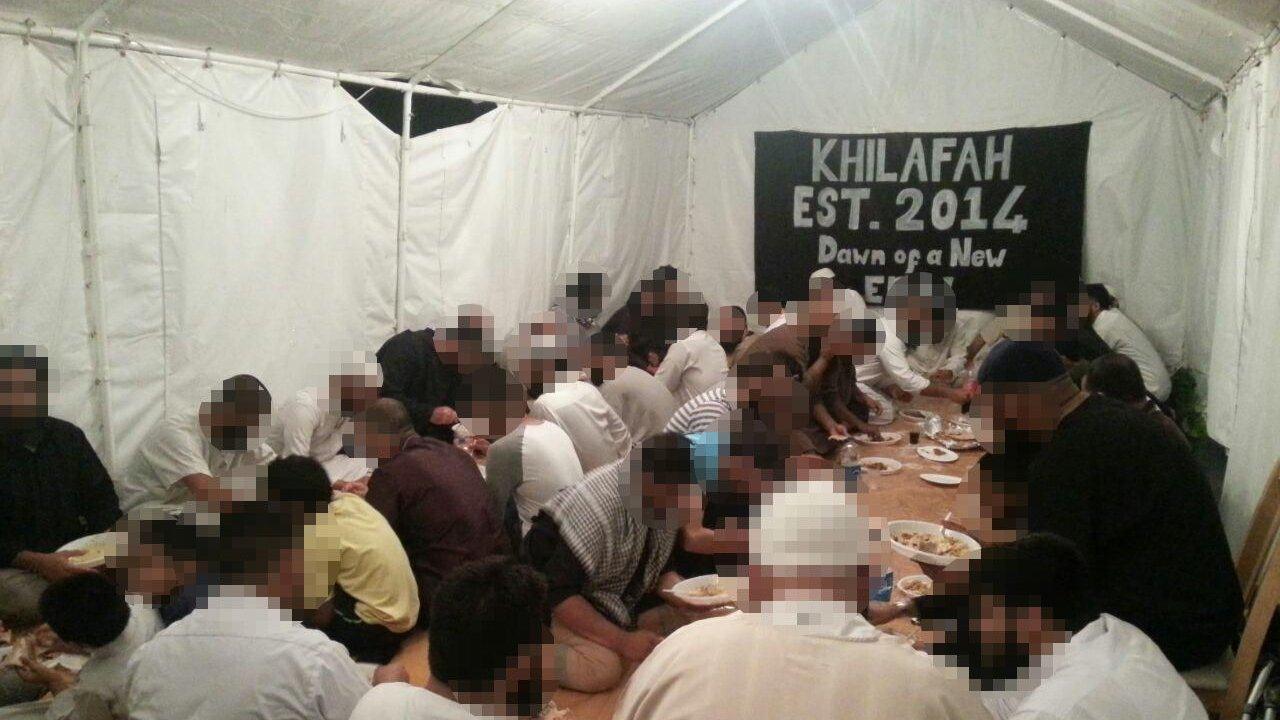
- Published20 May 2016
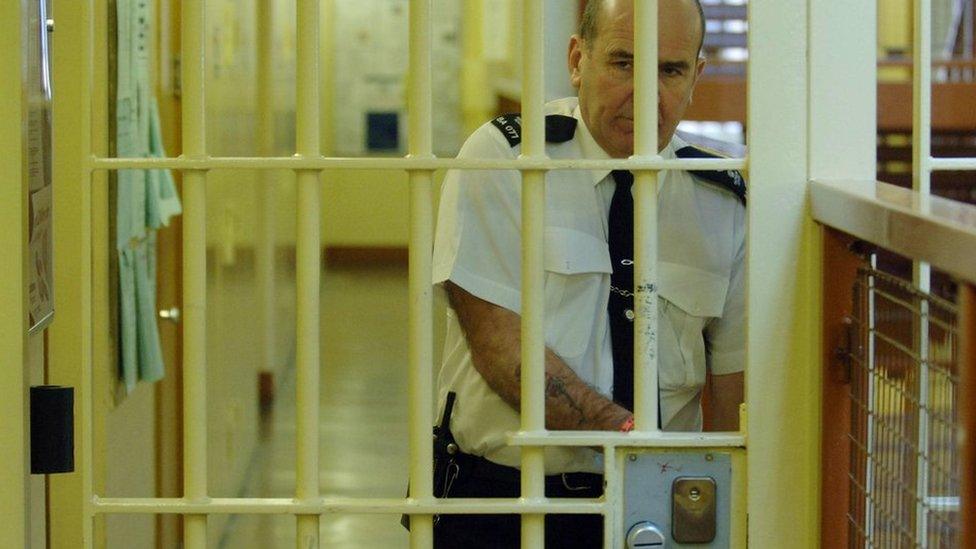
- Published28 July 2016
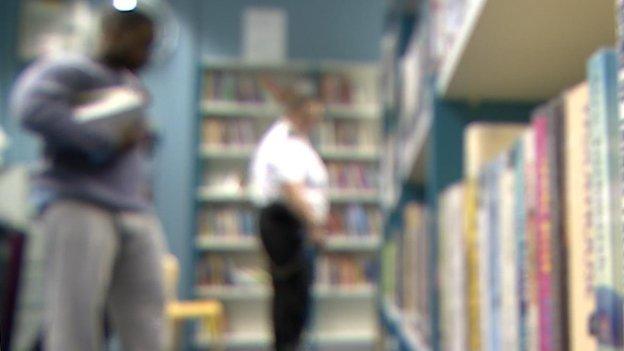
- Published2 June 2016
